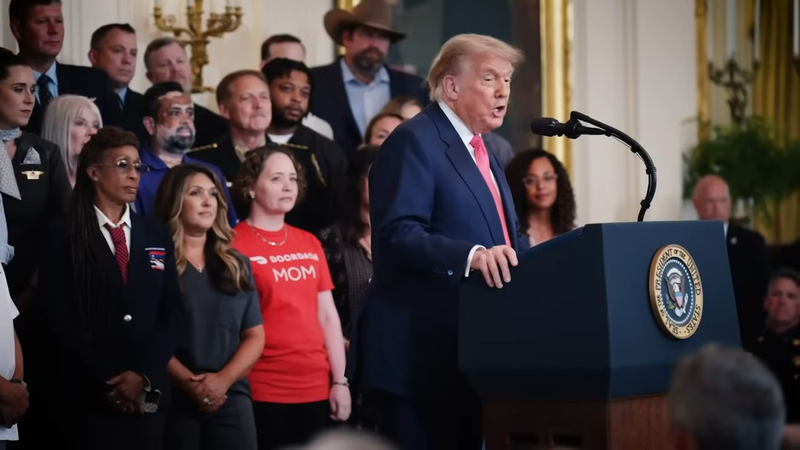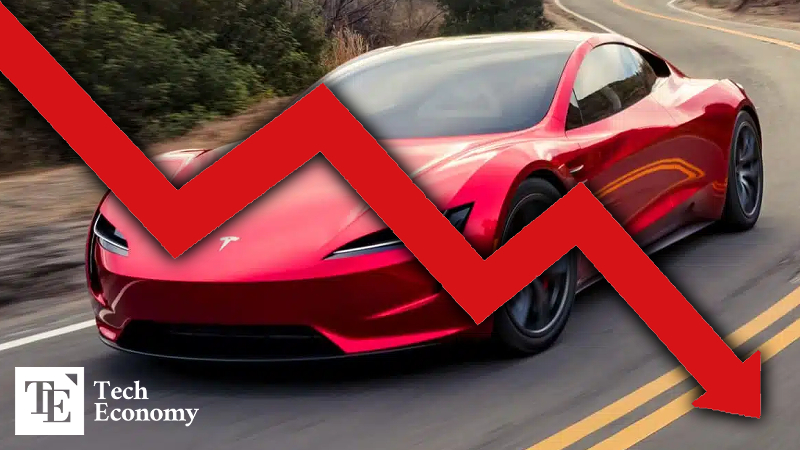Tesla Hit Hard by Trump’s Tax Law, Musk Responds with 'America Party' Launch
Input
Modified
U.S. EV Tax Credits Abolished as OBBBA Takes Effect Musk: “Trump’s Tax Cuts Will Wreck the U.S. Economy” Hyundai and Broader EV Industry Bracing for Fallout

President Donald Trump’s massive tax bill, a core initiative of his second-term agenda, has officially gone into effect, dealing a direct blow to the U.S. electric vehicle (EV) market. In particular, Tesla, the market leader in U.S. EV sales, is expected to suffer a sharp decline in profitability due to the elimination of EV tax credits. In response, Tesla CEO Elon Musk has fiercely criticized the Trump administration’s tax policies and announced the launch of a new political party—an apparent attempt to offset managerial uncertainties through increased political influence.
Lucrative Zero Emission Vehicle Credits Also Eliminated
On July 8 (local time), Investor’s Business Daily (IBD) reported that due to President Trump’s sweeping tax reform, Tesla will no longer be eligible for federal EV subsidies for vehicles sold in the U.S. after September 30. In addition, the Zero Emission Vehicle (ZEV) credit program, which has generated hundreds of millions of dollars in quarterly revenue, has also been repealed. ZEV refers to vehicles that emit no exhaust gas during operation, including battery electric vehicles (BEVs) and hydrogen fuel cell vehicles, but excluding hybrid electric vehicles (HEVs), plug-in hybrid vehicles (PHEVs), and internal combustion engine vehicles.
IBD stated, “The elimination of EV tax credits along with the highly profitable credit program will significantly impair Tesla’s profitability and competitiveness,” predicting that “U.S. consumer demand may spike temporarily in Q3 before the subsidy ends, but starting in Q4, EV prices will rise, inevitably slowing sales.” In Q2 of this year, Tesla’s total sales reached 384,122 units, a 13.5% drop from the same period last year. Amid weak demand for the Cybertruck and aging models, the last support beam—tax credits—has now collapsed.
This move was formalized with the enactment of the “One Big Beautiful Bill Act (OBBBA)” on July 4. The bill includes the early termination of EV tax credits, the permanent extension of Trump’s first-term tax cuts, and sweeping tax reductions for individuals and corporations, including exemptions for tips and overtime pay. It also features increased fossil fuel subsidies, massive welfare budget cuts, boosts to defense and immigration funding, and a $5 trillion increase in the federal debt ceiling. After signing the bill, President Trump expressed confidence, saying, “OBBBA will propel the U.S. economy like a rocket.”

Musk’s New Party Declaration Sends Tesla Stock Plunging
As the repeal of EV tax credits materialized, CEO Musk intensified his criticism of President Trump. After weeks of relative silence, Musk wrote on his social media platform X, “President Trump’s tax policy is completely insane,” warning it would “destroy millions of jobs and inflict enormous fiscal damage on the U.S. economy.” He added, “It’s a policy that favors legacy industries while causing serious harm to future industries like EVs and renewables,” and warned it would “push America down the path of debt slavery.”
Musk also sharply criticized the Republican Party, which spearheaded the passage of OBBBA. “Even polling data suggests this is a political suicide mission for the GOP,” he said. Addressing the Republican lawmakers who voted in favor, he asserted, “Shame on you,” and pledged to support efforts to unseat them in next year’s primaries. He recently announced the launch of the “America Party,” formalizing his political engagement. On July 5, Musk stated via X, “There needs to be an alternative that truly reflects the voice of the people,” adding that he aims for 2–3 Senate seats and 8–10 House seats.
Experts view these moves as an attempt by Tesla, facing profit deterioration due to shifting policy environments, to find a breakthrough through Musk’s political clout. Although Musk has repeatedly claimed that Tesla would not rely on EV subsidies—especially after boosting Tesla’s stock by supporting Trump last year—the company’s performance has remained highly sensitive to policy changes. The latest measures are expected to significantly impact Tesla’s short-term profitability and long-term investor sentiment. Adding to this is Musk’s escalating rhetoric, which is heightening owner-related risk and amplifying management uncertainty around Tesla.
In fact, following Musk’s new party announcement, Tesla’s stock on July 7 plunged 6.79% from the previous trading day, closing at $293.94. In just one day, its market capitalization shrank by $68 billion to $921 billion. Tesla stock fell below the $300 mark for the first time since last month, when a public spat between Trump and Musk over OBBBA caused a 14% plunge. Investor pullback is also becoming visible. For example, investment firm Azoria Partners postponed the launch of a Tesla-focused ETF that was originally scheduled for this week.
Solar and Wind Industries Also Hard Hit by OBBBA
The impact of OBBBA extends beyond Tesla. Hyundai Motor Group, which had been making large-scale investments in Georgia and other states based on incentives from the Inflation Reduction Act (IRA), now faces weakened price competitiveness and shrinking demand. Moreover, exceptions to tax credits for leased and rental commercial vehicles will only apply until September this year, effectively amounting to comprehensive regulation. Last year, Hyundai Motor Group sold 120,000 EVs in the U.S., ranking second in the market after Tesla. Assuming each vehicle qualified for the $7,500 tax benefit this year, the total amount would reach $900 million.
The solar and wind industries were also directly impacted. The expiration dates for the Investment Tax Credit (ITC) and Production Tax Credit (PTC) were moved up from 2032 to the end of 2027. A new condition was added that electricity must begin being generated by 2027 for benefits to apply, making compliance significantly more burdensome. However, the Advanced Manufacturing Production Credit (AMPC) will be maintained. Additionally, clauses imposing taxes on Chinese technologies or components used in solar and wind power plants were removed during Senate deliberations. For projects that break ground within one year of the bill’s enactment, the 2027 electricity generation requirement will be waived.
In the semiconductor sector, tax credits for companies establishing production facilities in the U.S. were increased from 25% to 35%. These benefits apply to facilities operating after the end of 2022 and breaking ground before the end of 2026, positioning companies like Samsung Electronics and TSMC to benefit. The bill also includes provisions allowing companies to deduct R&D expenditures incurred within the U.S. for semiconductors. However, the Trump administration has announced plans to re-evaluate the validity of subsidies from the previous Biden administration as part of tariff negotiations, leaving the total amounts of actual tax credits and subsidies uncertain.





















